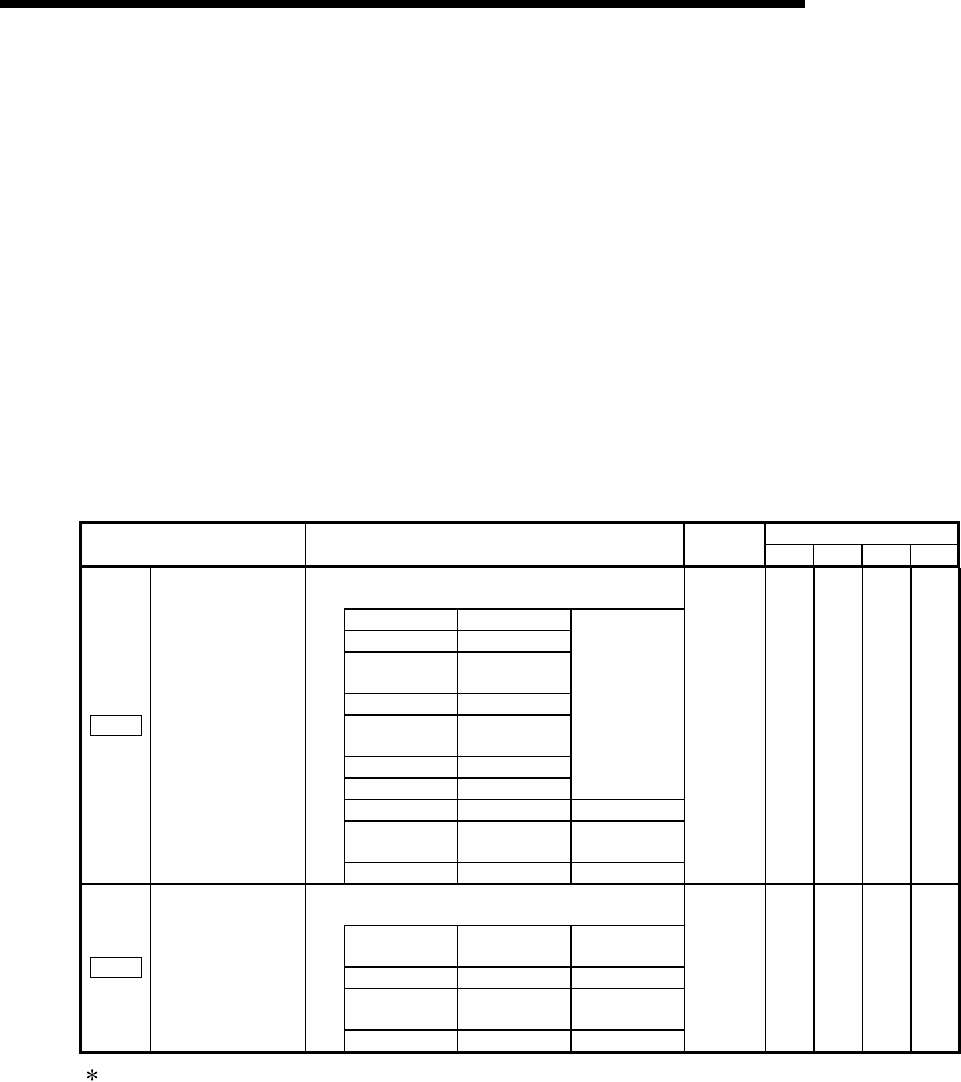
13 - 7
MELSEC-Q
13 COMMON FUNCTIONS
13.4 External I/O signal logic switching function
This function switches the signal logic according to the external equipment connected
to the QD75.
For the system in which drive unit READY with b-contact, upper limit switch, and lower
limit switch are not used, the parameter logic setting can be controlled without wiring if
it is changed to a "positive logic".
When the drive unit READY, upper limit switch, and lower limit switch are used, ensure
to use them with b-contact.
The details shown below explain about the "External I/O signal logic switching
function".
[1] Parameter setting details
[2] Precautions on parameter setting
[1] Parameter setting details
To use the "External I/O signal logic switching function", set the parameters
shown in the following table.
Buffer memory address
Setting item Setting details
Factory-set
initial value
Axis 1 Axis 2 Axis 3 Axis 4
• Selection of logic of signals input from external source to
QD75
b0 Lower limit
b1 Upper limit
b2
Drive unit
READY
b3 Stop signal
b4
External
command signal
b5 Zero signal
b6 Near-point signal
0: Negative logic,
1: Positive logic
b7 Unused Set "0".
b8
Manual pulse
generator input
0: Negative logic,
1: Positive logic
Pr.22
Input signal logic
selection
b9 to b15 Unused Set "0".
0 31 181 331 481
• Selection of logic of signals output from QD75 to external
source
b0
Command pulse
signal
0: Negative logic,
1: Positive logic
b1 to b3 Unused Set "0".
b4
Deviation counter
clear signal
0: Negative logic,
1: Positive logic
Pr.23
Output signal logic
selection
b5 to b15 Unused Set "0".
0 32 182 332 482
Refer to Section 5.2 "List of parameters" for the information on detail settings.
[2] Precautions on parameter setting
(1) The external I/O signal logic switching parameters are validated when the
PLC READY signal [Y0] is turned OFF to ON. (The logic is negative right after
power-on.)
(2) If each signal logic is set erroneously, the operation may not be carried out
correctly.
Before setting, check the specifications of the equipment to be used.


















